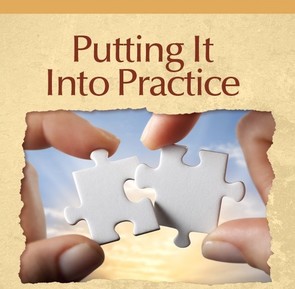PROFESSIONAL LEARNING: From Knowing to Doing
|
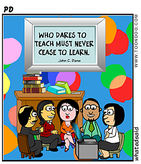
Albert Einstein is quoted as saying, "Insanity is doing the same thing over and over again and expecting different results." This may not equal insanity, but it certainly is ineffective.
Effective Professional Learning requires that ALL educators continue to learn about their content, how to effectively plan and deliver instruction, and how to assess understanding. Education continues to change as new technology and the availability of resources are infused into both teaching and learning. It's not enough to be a learner: Educators must apply their knowledge and skills to transform instruction and improve student achievement. Bottom Line: Educators must model what we ask students to do. |
Effective Professional LearningNeed a quick, printable overview of
importance of effective professional learning or some questions answered? Check out the Fact sheet we helped write for Learning Forward Kansas. Otherwise, read on! *********************** What is Professional Learning? Most would say it is staff development - something teachers dread, parents don't understand (because their kids aren't in school that day), and administrators hate to plan. Ironic isn't it, that in the world of education, we often behave like the only meaningful learning that needs to occur is among the students - not the adults. And yet, where are we in this ever-changing world if we are not learning new things and continuing to improve our practice? Learning is not a luxury, it is a necessity if we are to not just survive, but indeed, thrive! Read on! Professional Learning infers expectations that the professionals (ALL educators: teachers, administrators, paraprofessionals) are acquiring new knowledge and skills (learning) that can be applied to instructional practice that improves student performance. Focused, collaborative, and continuous professional learning for ALL educators improves classroom practice that leads to improved student results. |
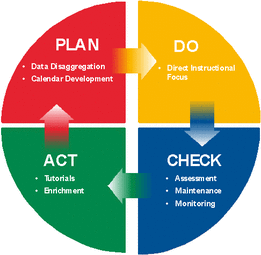
Teaching and Learning Consulting Network believes that everyone should strive for continuous improvement. Olympic athletes represent the best in their event and even after setting a world record or winning the gold, they continue to set new goals and improve their performance. Translation: even the best educator can get better. And who better to model lifelong learning for students, than their teachers (and principals)? Professional Learning is vital to ensuring that all educators have the skills and knowledge to positively impact student performance. This requires that we (educators) keep up with the changes that face schools on a regular basis as new technologies are developed and the demands of college and career readiness challenge us to have students prepared for the world after graduation. So what can schools do to improve the view or attitude that educators have toward professional learning? Follow initial learning with time and support during implementation and sustain the changes with reflection and revision through regular collaboration. |
Professional Learning Drives the Changes That Lead to Student Achievement
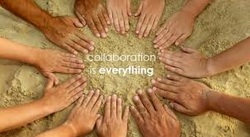
Recent changes in education have been enacted to improve student achievement. These include the Common Core Standards (in Kansas these are called Kansas College and Career Ready Standards) to focus learning on deeper thinking and application of what is learned to prepare students to enter higher education and the work force. In addition, educator evaluations have been re-tooled to improve building leadership, and instruction in the classroom, which in turn should lead to improved student achievement. Kansas has also instituted the 5 R's Accreditation Model known as Kansas Education Systems Accreditation (KESA) that address Relationships, Relevance, Responsiveness, Rigor and Results. If these goals are to be achieved, it is important that schools understand that this begins with and is supported by effective professional learning.
According to Learning Forward in their February 2014 Knowledge Brief, effective professional learning at the school/building level has teacher teams learning in a continuous cycle of improvement that includes:
3 Assumptions of Effective Professional Learning
For more information, please read the Learning Forward Knowledge Brief, February 2014 by Joellen Killion and Stephanie Hirsh.
Teachers are learners too, so professional learning experiences must reflect a higher level of active engagement and relevance so that teachers also get the most out of learning experiences. "Sit and get" is not engaging, and yet we spend a great deal of time in these settings, ironically telling teachers to plan more engaging lessons for their students! Click here to learn more about Adult Learning. We must walk our own talk!
Networking isn't just for Individuals
Consider how schools that participate in regional networking can produce personalized professional learning for educators in their own schools. Sharing ideas can lead to great learning as this New York educator shares. Read more...
According to Learning Forward in their February 2014 Knowledge Brief, effective professional learning at the school/building level has teacher teams learning in a continuous cycle of improvement that includes:
- addressing specific learner needs
- opportunities for ongoing practice and feedback
- monitors results
3 Assumptions of Effective Professional Learning
- Effective Professional Learning is the vehicle to implement and integrate multiple system-wide initiatives, including Common Core and Educator Evaluations.
- Professional Learning transforms educator practice when they learn regularly in collaborative teams during the work day, and have support and feedback from administrators and instructional coaches.
- A cycle of continuous improvement requires that the processes for supporting on going learning are defined and include, examining key data, study new information, practice and revising instructional strategies, giving and receiving feedback, and regularly reviewing progress.
For more information, please read the Learning Forward Knowledge Brief, February 2014 by Joellen Killion and Stephanie Hirsh.
Teachers are learners too, so professional learning experiences must reflect a higher level of active engagement and relevance so that teachers also get the most out of learning experiences. "Sit and get" is not engaging, and yet we spend a great deal of time in these settings, ironically telling teachers to plan more engaging lessons for their students! Click here to learn more about Adult Learning. We must walk our own talk!
Networking isn't just for Individuals
Consider how schools that participate in regional networking can produce personalized professional learning for educators in their own schools. Sharing ideas can lead to great learning as this New York educator shares. Read more...
Where We've Been: Ineffective or Lacking Focus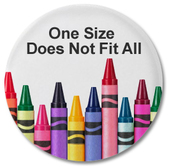
Why does Professional Learning, aka "Staff Development," have a bad rap? Consider the following: Rarely does random, poorly planned and delivered professional learning achieve the goal of advancing the knowledge and skills of educators to improve teaching and learning. Whole group sessions do not typically meet the variety of needs or address diverse skills that educators bring to the table. If it is valuable to differentiate student learning, then the same holds true for adult learners too. Teaching in isolation or collaboration that fails to focus on tying instructional strategies to student performance are missed opportunities. Time is of the essence for teachers, so poorly planned or delivered training feels like a waste of already limited time. Without support or follow-up, implementation is weak or non-existent and no relationship is created between professional learning and student achievement. Collaboration is expected but the process is not learned/understood by participants. Support is not provided in terms of allocated time, resources, and/or accountability. If not a workshop, then what? |
Where We Aspire to Be: Relevant, Reflective, and Effective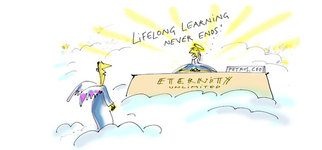
Effective professional learning is necessary for educators to stay current on research-based instructional strategies, implement new processes and programs, and analyze and use achievement data to improve student performance. The most effective professional learning
What does this look like in action? Click here to see how the State of Kentucky has provided a Model Framework for Curriculum and tied the Standards of Professional Learning to the successful implementation of the curricular expectations. In 2011, Learning Forward selected Kentucky as the demonstration state in how to transform professional learning to prepare students for college and career readiness. (Note: The professional learning section begins on p. 80 of the linked document.) More information about each standard and strategies to utilize these standards can be found on the PL Standards page on this site or at the Learning Forward website. |
Why Haven't Things Changed for American Professional Learning? Barnett Barry explores 5 beliefs and practices to explain why Professional Learning in America continues to be ineffective in his blog, Deja Vu in American Education: The Woeful State of Professional Development. Barry gives us the WHY, now we must discover HOW we will make the necessary changes to improve professional learning that leads to more effective instruction and improved student performance (the WHAT). Knowing isn't the same as doing.
What Does Professional Learning
Look Like in Your School?

Learning Forward Executive Director, Stephanie Hirsh, has provided a survey to help schools determine their areas of strength and weakness when assessing the role, use, and effectiveness of Professional Learning.
Click on this link to view the article and embedded survey: Professional Learning Pop Quiz
What will you do with this information? How can this knowledge springboard systemic changes in your school or district that impact classroom practice and ultimately student performance?
Click on this link to view the article and embedded survey: Professional Learning Pop Quiz
What will you do with this information? How can this knowledge springboard systemic changes in your school or district that impact classroom practice and ultimately student performance?
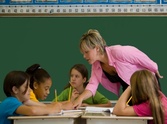
The Teaching and Learning Consulting Network, LLC
Supporting the quest to improve teaching and learning
